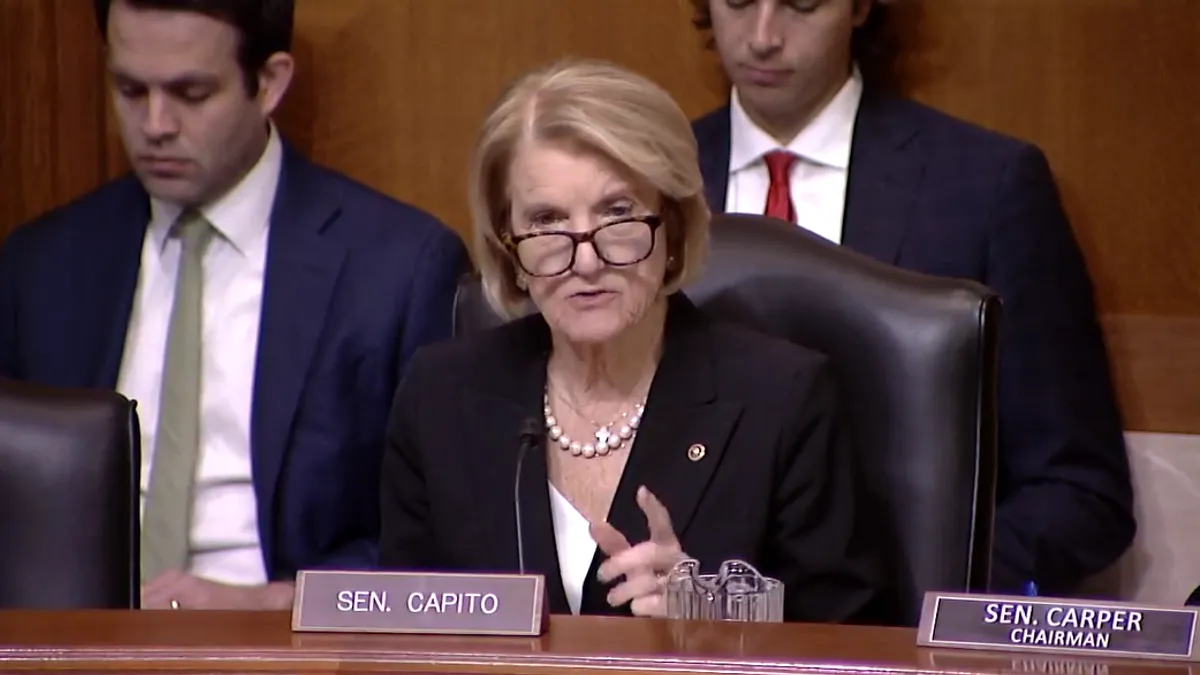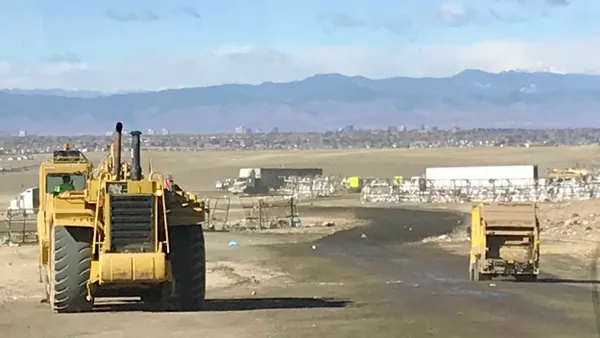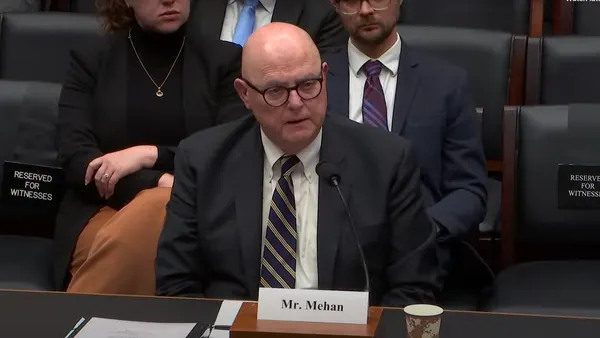Dive Brief:
- At a Senate hearing on Wednesday, the waste and recycling industry continued to advocate for a “narrow exemption” from chemical rules they say could saddle operators with unfair costs and liability when the U.S. EPA eventually designates certain PFAS as hazardous substances under Superfund.
- Speakers representing the Solid Waste Association of North America and the National Waste & Recycling Association, along with wastewater treatment facilities, testified during the Senate Environment and Public Works committee hearing that their industries are “passive receivers” of PFAS-containing material.
- The solid waste and wastewater sectors say they play a critical role in responsibly managing materials containing per- and polyfluoroalkyl substances, noting many operators are already implementing PFAS removal and destruction technologies. Yet an Environmental Working Group representative testified that such an exemption could provide a “loophole for polluters.”
Dive Insight:
The hearing came as the waste industry anxiously awaits a new rule from EPA to designate two PFAS compounds as hazardous substances under the Comprehensive Environmental Response, Compensation and Liability Act, known as CERCLA or Superfund. That rule is expected to be finalized in the coming weeks, and the waste industry says time is running out for federal intervention to prevent costly lawsuits.
The hazardous substance rule is separate from another EPA rule to set drinking water standards for six types of PFAS. The anticipated drinking water rule is also expected to be finalized imminently and could impact how landfills manage leachate.
NWRA and SWANA, as well as other members of the waste and organics industries, have been asking Congress for a narrow CERCLA exemption for passive receivers since 2022. The Wednesday Senate hearing follows a congressional briefing on the topic, held last year, as well as numerous other roundtables and meetings, which Ranking Member Shelley Moore Capito, R.-W.Va., called “valuable” discussions on the issue. Chairman Tom Carper, D-Del., added that he “salutes our utilities who are bearing the brunt of this contamination.”
The groups maintain that an EPA designation of PFOS and PFOA as hazardous substances could mean facilities would have to start rejecting PFAS-containing material, incur new costs for sorting or processing the material or face PFAS-related legal action.
“CERCLA liability will completely disrupt the well-established municipal waste infrastructure in this country,” said Robert Fox, a CERCLA lawyer who represented SWANA and NWRA at the hearing. “Waste will have no place to go, and increased disposal costs will turn CERCLA objectives from a polluter pays policy into a community pays reality.”
In addition to Senate testimony, the two associations, along with more than 50 other waste and wastewater groups, submitted a coalition letter calling for assurances that they will not be held liable.
“Our sectors acknowledge our role as part of the long-term solution to PFAS management, recognize the need to protect public health and the environment, and share the goal of holding accountable those entities that are primarily responsible for PFAS contamination,” the letter states. Other signatories include the US Composting Council, California Waste Haulers Council, Virginia Biosolids Council and, Washington Refuse and Recycling Association.
A federal bill aims to shield such industries from liability. Sen. Cynthia Lummis, R-Wyo., and John Boozman, R-Ark., are among the all-Republican sponsors of the Resource Management PFAS Liability Protection Act, introduced last May to formalize such an exemption for landfill operators and other entities. So far, that bill has not advanced.
During the hearing, Capito urged “bipartisan collaboration” for protecting passive receivers from certain liability. “Absent congressional intervention, the burden of cleaning up sites tainted with PFAS will fall on the shoulders of entities like drinking water and clean water systems and waste management utilities,” she said, adding that such industries did not manufacture or generate such PFAS but are “required by law to catch or to receive these contaminants.”
The Environmental Working Group has criticized some of the efforts to determine Superfund exemptions, including portions of Lummis and Boozman’s bill.
“Creating loopholes in the Superfund law will remove a powerful incentive for water utilities and waste managers to be good stewards of these toxic forever chemicals,” said Scott Faber, EWG’s senior vice president of government affairs, during the Senate hearing. He added that the EPA has already acknowledged that it does not intend to pursue certain industries under the new rule and already “has a long history of using the discretion provided by Congress to assign liability where it belongs: with the polluters.”
Fox clarified that the waste industry isn’t looking to be exempt from Superfund as a whole and that any landfill operations that cause certain PFAS-related contamination, such as groundwater contamination, would still be on the hook for cleanup.
Michael Witt, general counsel for the Passaic Valley Sewerage Commission, said it’s unrealistic for landfills and wastewater treatment facilities to reject future materials because of fear of PFAS liability. “We can't just tell people, ‘We're not going to take your sewage anymore.’ We can't tell landfills, ‘We're not going to take your leachate anymore, and you're just going to have to figure out some other way to dump it,’” he said, testifying on behalf of the Water Coalition Against PFAS. “You want us treating it. This is what we do all day every day and we are very good at our jobs. We want to be part of the [solution].”










